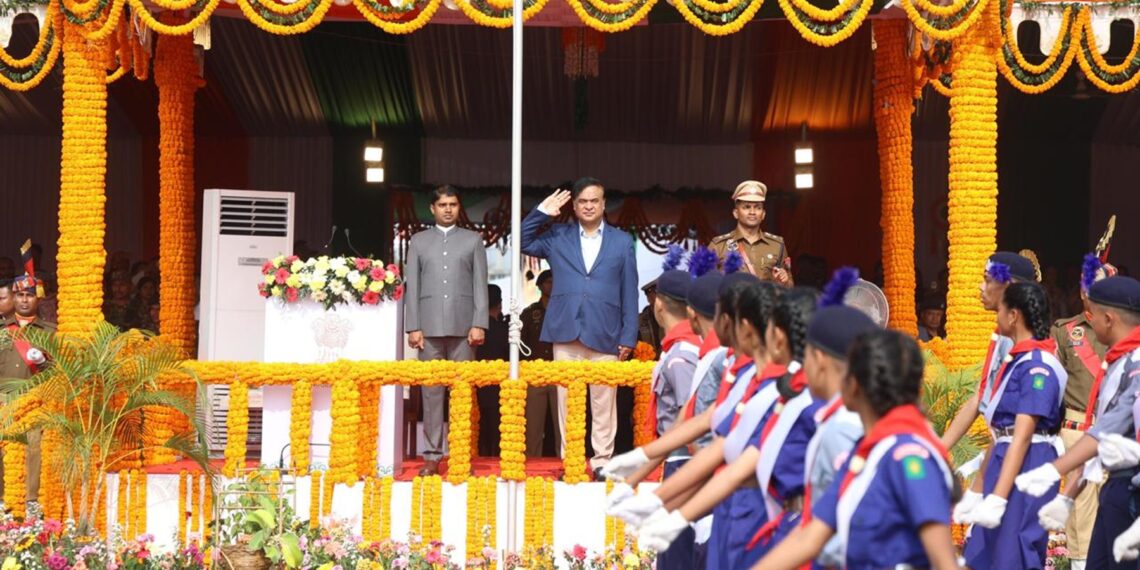Guwahati: On Republic Day, Assam Chief Minister Himanta Biswa Sarma unveiled ambitious plans for the state’s future, declaring Dibrugarh as the second capital of Assam within the next three years.
Addressing the gathering while unfurling the national flag in the city, Sarma shared the government’s vision for Dibrugarh’s development, including the construction of a permanent assembly building in the city, located on the southern bank of the Brahmaputra in Upper Assam.
“Today marks a significant milestone in Dibrugarh’s journey to becoming Assam’s second capital. This is the first time state Republic Day celebrations are taking place in this historic city,” Sarma said.
He also announced that, beginning in 2027, one session of the Assam Assembly will be held annually in Dibrugarh.
The chief minister further revealed that construction work for the permanent assembly building will begin on January 25 next year.
He assured that within three years, Dibrugarh would emerge as a key city in India’s development.
As part of the broader urbanization initiative, Sarma emphasized that Dibrugarh will be developed alongside other cities like Tezpur and Silchar. “Tezpur will become the cultural capital of Assam, with a Raj Bhavan to be constructed there. Silchar will house a new secretariat and office of the chief secretary, bridging the gap between Barak Valley and Guwahati,” he added.
Last year, Sarma had also inaugurated the first Chief Minister’s secretariat outside of Guwahati, in Dibrugarh.
Turning to national issues, Sarma reflected on the legacy of Dr. B.R. Ambedkar, stating that the revered leader was initially excluded from the Constitution Drafting Committee.
“Pandit Jawaharlal Nehru considered him a troublemaker and tried to keep him out of the committee. However, Mahatma Gandhi recognized Ambedkar’s intellectual brilliance and insisted on his inclusion, a decision that proved to be invaluable for the nation,” Sarma noted.
The chief minister also praised India’s Constitution for embodying the principles of brotherhood and compassion, transcending narrow thinking.
He highlighted the importance of Article 17, which abolishes untouchability, and emphasized that Ambedkar’s fight was not only for Dalits but for the soul of India itself.
“We are committed to ensuring that India never returns to the darkness of the Emergency period. Our goal is to transform India into a developed nation by 2047,” Sarma affirmed.















